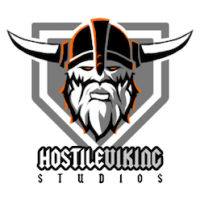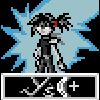GameMaker specifically tell me all math I need to learn or should I just know about the x and y axis?
Do I really need to learn made to program?
It depends.
Some things require math, other things don't.
It's impossible to say "this is the math you need for games", because it will depend on the game.
Some games require a lot of heavy-duty math, others are much more simple.
That said, it's always nice to know things, and knowledge of math is helpful in many ways.
My suggestion would be to just keep working towards your goal. If you get to something where you need more math than you know, learn the math and use it.
It depends.
Some things require math, other things don't.
It's impossible to say "this is the math you need for games", because it will depend on the game.
Some games require a lot of heavy-duty math, others are much more simple.
That said, it's always nice to know things, and knowledge of math is helpful in many ways.
My suggestion would be to just keep working towards your goal. If you get to something where you need more math than you know, learn the math and use it.
Thanks :)
If you are going to only learn one thing for game making, than math is the prime topic (besides programing).
If you're still a youth in school, learn all the math you can pick up. Nobody says they learned too much, or that they know too many math topics. Instead people decry all the time that they don't have the necessary math skills, or that their math skills on a topic are poor or forgotten.
Artists don't need much math, but any math will help them in at least understanding what their tools are doing. Designers need some math to figure out distributions and probabilities and for tuning values, and for talking with programmers.
If you're looking to become a professional programmer, you will benefit from:
* Algebra. This is the fundamental working with equations. It is difficult to write more than a few lines of code without touching basic algebra.
* Trigonometry and Geometry. These are the basic manipulators in 2D worlds and are the preliminary math to working in 3D worlds. Rotations and translations (movement) are composed of trig functions and pairs of values, points, coordinate, angles, and distances. Working with triangles and meshes needs geometry.
* Linear algebra. This is the math of 3D worlds, building up from trig and geometry. Matrix an vector operations, which are the core of 3D graphics, are core features in linear algebra. Many of the linear algebra definitions and functions are used all the time.
* Fundamentals of statistics. Games use statistics for all kinds of things. Probability curves are used for all kinds of random events in games, like determining how frequently to drop different types of loot, or determining how likely there should be a critical hit. Number generation, which may or may not be random, is generally covered in statistics.
* Fundamentals of discrete mathematics. You probably don't need much, but it can be a useful topic. Computers don't do the same math that mathematicians use. Computers are discrete machines,. Computer don't use 'real' numbers like mathematicians with infinite precision or algebraic expressions, they fake it with 16 bits or 32 bits or 64 bits or 128 bits. This is less necessary of a topic, but still quite useful.
* Calculus. While some people get by programming with iterative methods, a little bit of calculus goes a long way for writing quality computer code. Instead of accumulating values over time, shifting and moving and changing multiple variables and hoping they add up to something close to what you expect, you can figure out the exact values with a bit of calculus. Then you can write up a function where you give it the elapsed time and the function computes the exact value, rather than accumulations.
More math is always useful, pick up what you can. When you need to do something, spend some time and learn it.
You don't have to sit around until you've learned everything before you start coding though. Do both at the same time: create and research.
Like everyone else is implying It depends on the game your making. Some games use alot of math some don't. My advice to you would be to decide what type of game you want and learn any math nesserasy to make your idea a reality.











